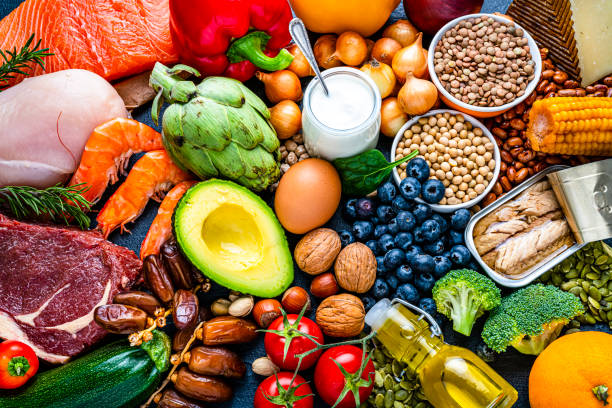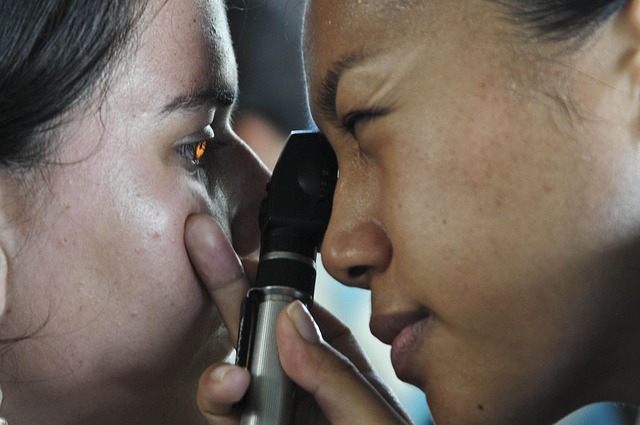Everything You Need to Know About Managing Diabetes With Food
Living with diabetes requires careful attention to dietary choices, as food directly impacts blood sugar levels. Managing diabetes through nutrition isn't just about avoiding sugar—it's about understanding how different foods affect your body and learning to create balanced meals that support stable glucose levels. With the right approach to meal planning and food selection, people with diabetes can enjoy a varied, satisfying diet while effectively managing their condition and potentially reducing the need for medication.

Discover Everything About Nutrition for Diabetes Management
Understanding the fundamentals of diabetes nutrition is essential for effective blood sugar management. The primary goal is maintaining steady blood glucose levels by balancing carbohydrates, proteins, and fats. Carbohydrates have the most significant impact on blood sugar, as they break down into glucose during digestion. However, not all carbohydrates affect blood sugar equally. Complex carbohydrates found in whole grains, legumes, and vegetables contain fiber that slows digestion and helps prevent blood sugar spikes.
Portion control is another crucial aspect of diabetes management. Using measuring tools or visual cues (like comparing a serving of meat to a deck of cards) can help ensure appropriate portions. The plate method—filling half your plate with non-starchy vegetables, a quarter with lean protein, and a quarter with carbohydrates—provides a simple framework for creating balanced meals. Many diabetes educators recommend this approach as it doesn’t require complex calculations while still promoting nutritional balance.
Explore What You Need to Know About Diabetes-Friendly Foods
Foods with a low glycemic index (GI) are particularly beneficial for people with diabetes. The glycemic index measures how quickly foods raise blood sugar levels. Low-GI foods (55 or less on the scale) include most fruits, non-starchy vegetables, legumes, and whole grains like barley and quinoa. These foods digest slowly, resulting in more gradual changes in blood sugar. In contrast, high-GI foods like white bread, sugary cereals, and processed snacks can cause rapid blood sugar spikes.
Protein-rich foods play an important role in diabetes management. Lean proteins like chicken, fish, tofu, eggs, and legumes help you feel full longer and have minimal impact on blood glucose. Similarly, healthy fats from sources like avocados, nuts, seeds, and olive oil are essential parts of a diabetes-friendly diet. These fats help slow digestion, reducing blood sugar spikes after meals, and contribute to heart health—an important consideration since diabetes increases cardiovascular risk.
Fiber deserves special attention in diabetes nutrition. Both soluble fiber (found in oats, beans, and fruits) and insoluble fiber (abundant in whole grains and vegetables) help manage blood sugar levels. Soluble fiber forms a gel-like substance during digestion that slows glucose absorption, while insoluble fiber helps promote feelings of fullness and supports digestive health. Experts recommend that people with diabetes aim for 25-30 grams of total fiber daily.
A Guide to Choosing Foods for Blood Sugar Support
Creating a sustainable eating pattern is more effective than following restrictive short-term diets. Several dietary approaches have shown benefits for diabetes management, including the Mediterranean diet, DASH (Dietary Approaches to Stop Hypertension) diet, and plant-based eating patterns. These approaches emphasize whole foods, vegetables, fruits, lean proteins, healthy fats, and limited processed foods. Research suggests that these eating patterns can improve insulin sensitivity, reduce inflammation, and potentially lower the risk of diabetes complications.
Meal timing and frequency also influence blood glucose management. Eating regular meals at consistent times helps maintain steady blood sugar levels throughout the day. Some people with diabetes benefit from eating smaller, more frequent meals, while others do well with three balanced meals daily. Working with a registered dietitian can help determine the optimal meal schedule for individual needs and medication requirements.
Smart beverage choices are often overlooked in diabetes management. Water should be the primary beverage, while sugary drinks like regular soda, sweetened tea, and fruit juices can cause rapid blood sugar spikes. Unsweetened coffee and tea, sparkling water, and herbal infusions are good alternatives. Alcohol requires caution as it can cause both high and low blood sugar depending on consumption patterns and timing—consulting with healthcare providers about alcohol use is advisable.
Practical Meal Planning for Diabetes
Successful diabetes management often depends on advance meal planning. Setting aside time weekly to plan meals, create shopping lists, and prepare food can make healthy eating more consistent and less stressful. Batch cooking and freezing portions ensures that nutritious meals are available even during busy periods. Additionally, planning helps reduce the reliance on convenience foods, which are often high in refined carbohydrates, sodium, and unhealthy fats.
Reading nutrition labels is an essential skill for diabetes management. Focus on serving sizes, total carbohydrates (including sugar and fiber content), and ingredient lists. Ingredients are listed by weight, so those appearing first are present in the largest amounts. Be wary of products with added sugars near the beginning of the ingredient list. Look for products with minimal processing and recognizable ingredients, as these generally have less impact on blood sugar than highly processed alternatives.
Tracking and Adjusting Your Diabetes Diet
Monitoring blood glucose before and after meals helps identify how specific foods affect your body. Many people with diabetes benefit from keeping a food journal alongside blood sugar readings to identify patterns and make informed adjustments. Digital apps designed for diabetes management can simplify this process by combining food tracking with glucose monitoring.
Working with healthcare professionals, particularly registered dietitians specialized in diabetes care, provides personalized guidance that accounts for individual factors like medication regimens, cultural preferences, and lifestyle needs. Regular consultations allow for refinement of dietary strategies as health status and treatment needs evolve. Remember that diabetes management is highly individualized—what works well for one person may not be ideal for another.
This article is for informational purposes only and should not be considered medical advice. Please consult a qualified healthcare professional for personalized guidance and treatment.




